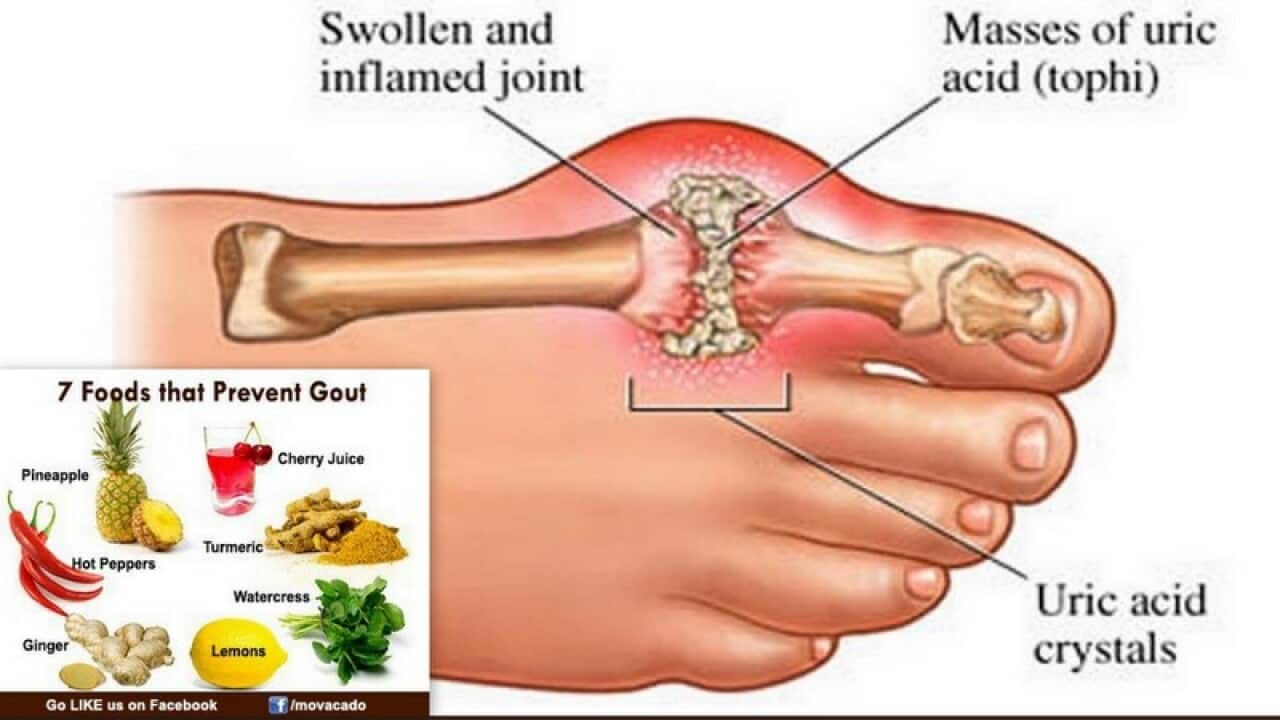Gout occurs when uric acid, a normal waste product, builds up in your bloodstream and forms urate crystals in a joint.
Your body makes uric acid when it breaks down purines, a substance found in your body and in some foods. Uric acid normally dissolves in your blood, is processed by your kidneys and leaves your body in urine.
If your body makes too much uric acid, or your kidneys can’t clear enough of it out, it builds up in your blood. This is called hyperuricaemia.
Having hyperuricaemia doesn’t mean you’ll develop gout – in fact most people with hyperuricaemia don’t go on to develop gout.
Because of this it’s thought that other factors such as your genes may be involved.
Similar attacks to gout can be caused by a condition called pseudogout (or acute calcium pyrophosphate arthritis). In this case, crystals of calcium (rather than urate) are deposited in joint cartilage and then shed into the joint space.
This is likely to affect your knees and other joints more than the big toe and is most common in people with osteoarthritis.





